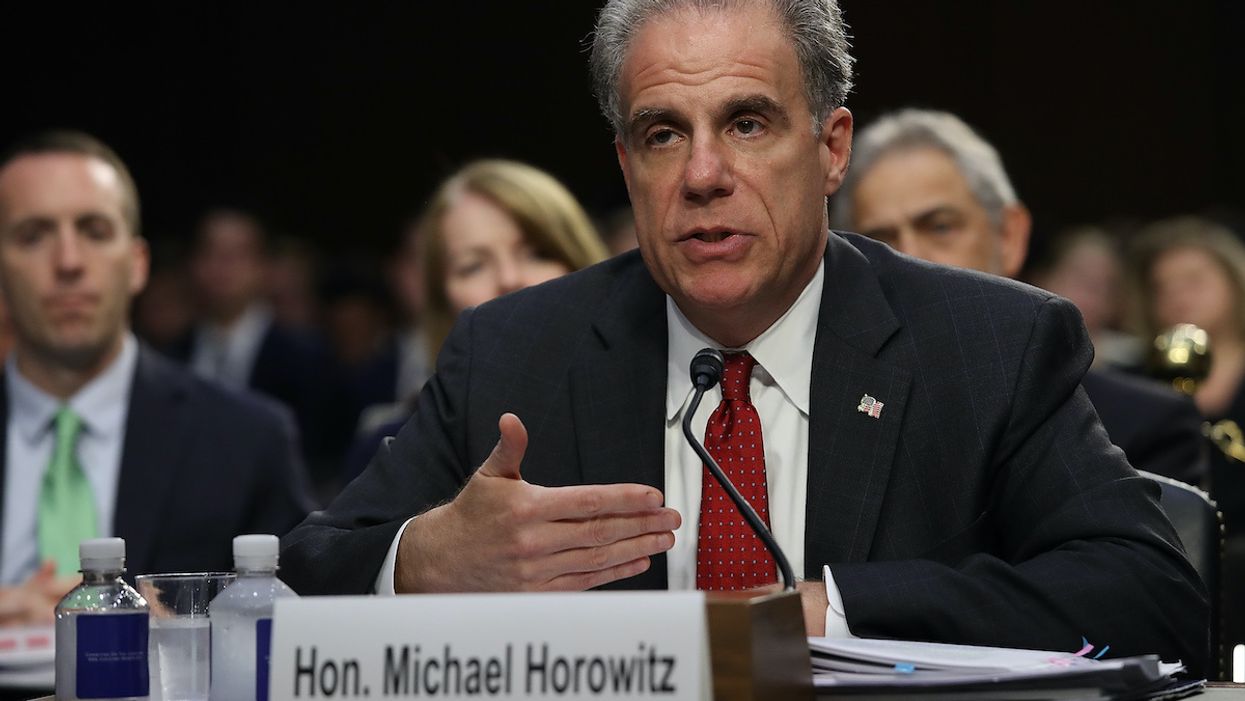
Win McNamee/Getty Images

Another investigator has already disagreed with his conclusion.
After months of anticipation, the Department of Justice Inspector General's office released its report on its investigation into the origin of the FBI's investigation of the Trump campaign in 2016.
In short, the 476-page document report says that Horowitz's team did not find evidence of political bias in the decision to open investigations into the Trump campaign, but did find some serious problems with how FBI personnel went about obtaining warrants under the Foreign Intelligence Surveillance Act, also known as FISA, in the process of conducting the investigation.
Here are some of the report's findings:
"The Inspector General's report now makes clear that the FBI launched an intrusive investigation of a U.S. presidential campaign on the thinnest of suspicions that, in my view, were insufficient to justify the steps taken," Attorney General William Barr said in a statement sent out shortly after the report's release:
It is also clear that, from its inception, the evidence produced by the investigation was consistently exculpatory. Nevertheless, the investigation and surveillance was pushed forward for the duration of the campaign and deep into President Trump's administration. In the rush to obtain and maintain FISA surveillance of Trump campaign associates, FBI officials misled the FISA court, omitted critical exculpatory facts from their filings, and suppressed or ignored information negating the reliability of their principal source. The Inspector General found the explanations given for these actions unsatisfactory. While most of the misconduct identified by the Inspector General was committed in 2016 and 2017 by a small group of now-former FBI officials, the malfeasance and misfeasance detailed in the Inspector General's report reflects a clear abuse of the FISA process.
Democratic Senate Judiciary Committee member Richard Blumenthal (Conn.) said that the report "completely demolishes Trump's false claims & right-wing conspiracy theories that the Russia investigation involved political bias or other improper motive."
U.S. Attorney John Durham, who is conducting his own investigation into the origins of the FBI investigation, responded to the release of the report with a statement that took issue with Horowitz's conclusions.
"Our investigation has included developing information from other persons and entities, both in the U.S. and outside of the U.S," Durham said. "Based on the evidence collected to date, and while our investigation is ongoing, last month we advised the Inspector General that we do not agree with some of the report's conclusions as to predication and how the FBI case was opened."
After the report's release, House Oversight Committee Ranking Member Jim Jordan (R-Ohio) said after the release that "there are many lingering questions" and called on Democratic House leaders to "convene hearings with Inspector General Horowitz as soon as possible."
The report is the subject of a Senate Judiciary Committee hearing scheduled to take place Wednesday.